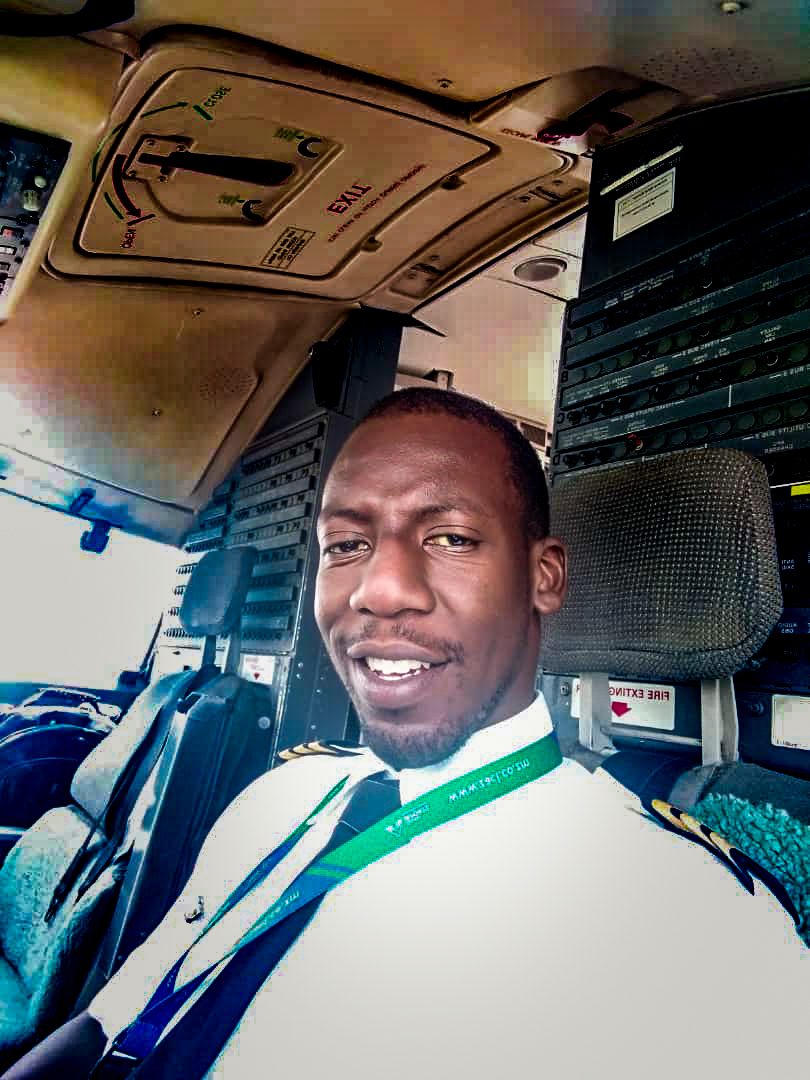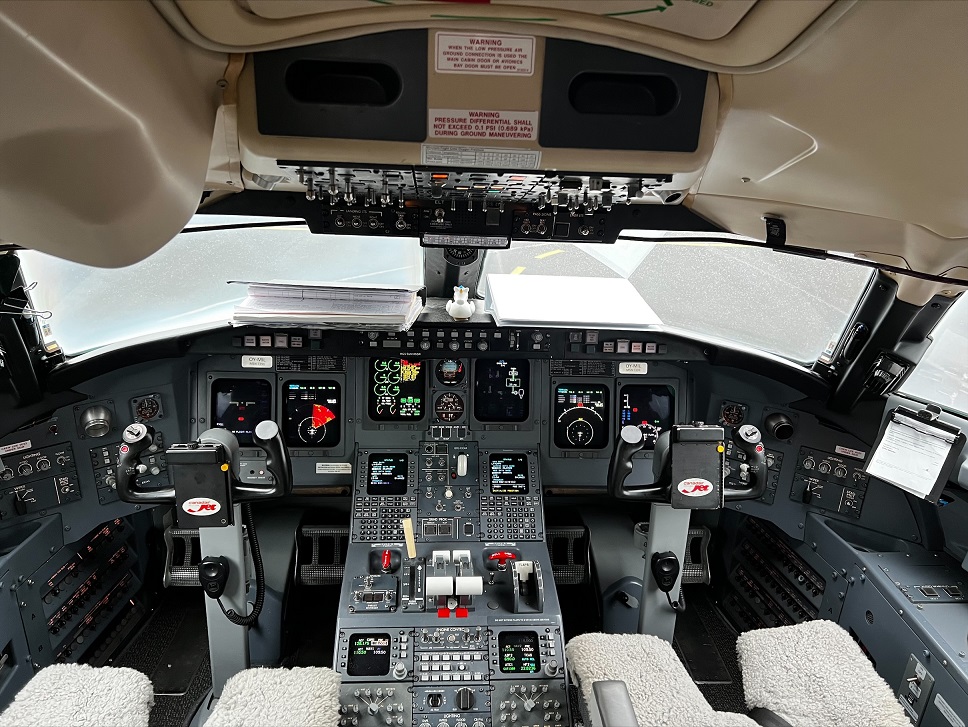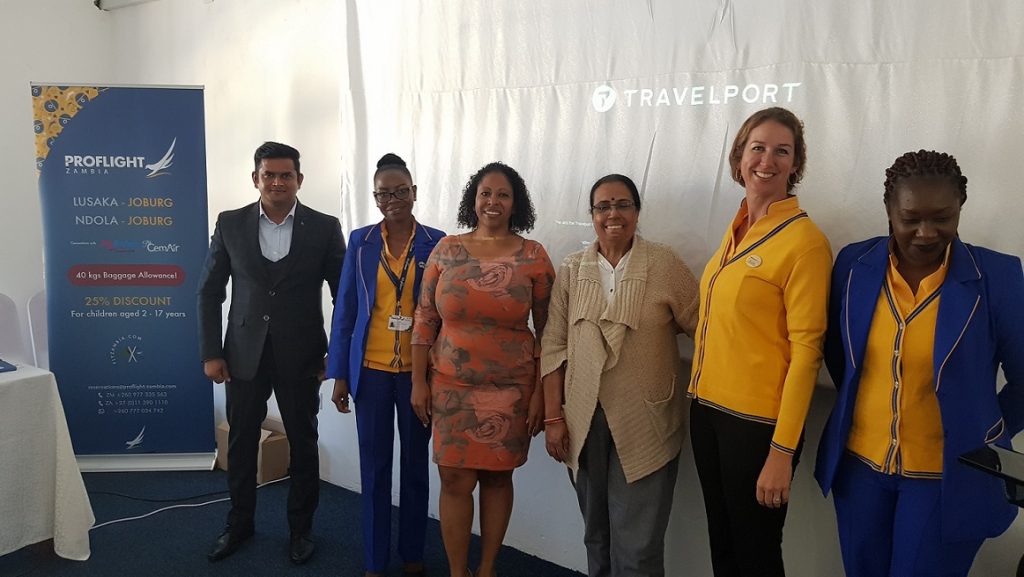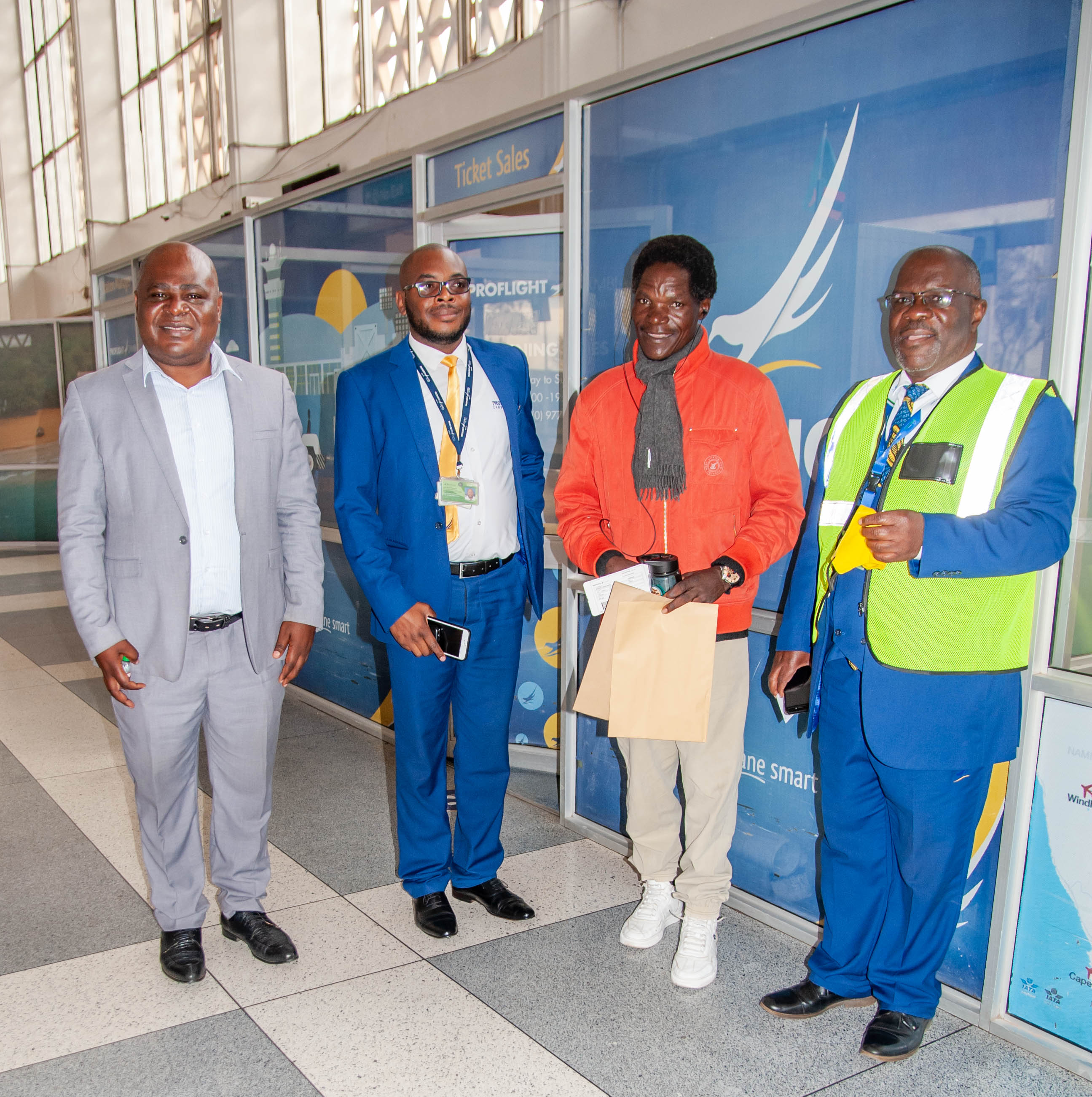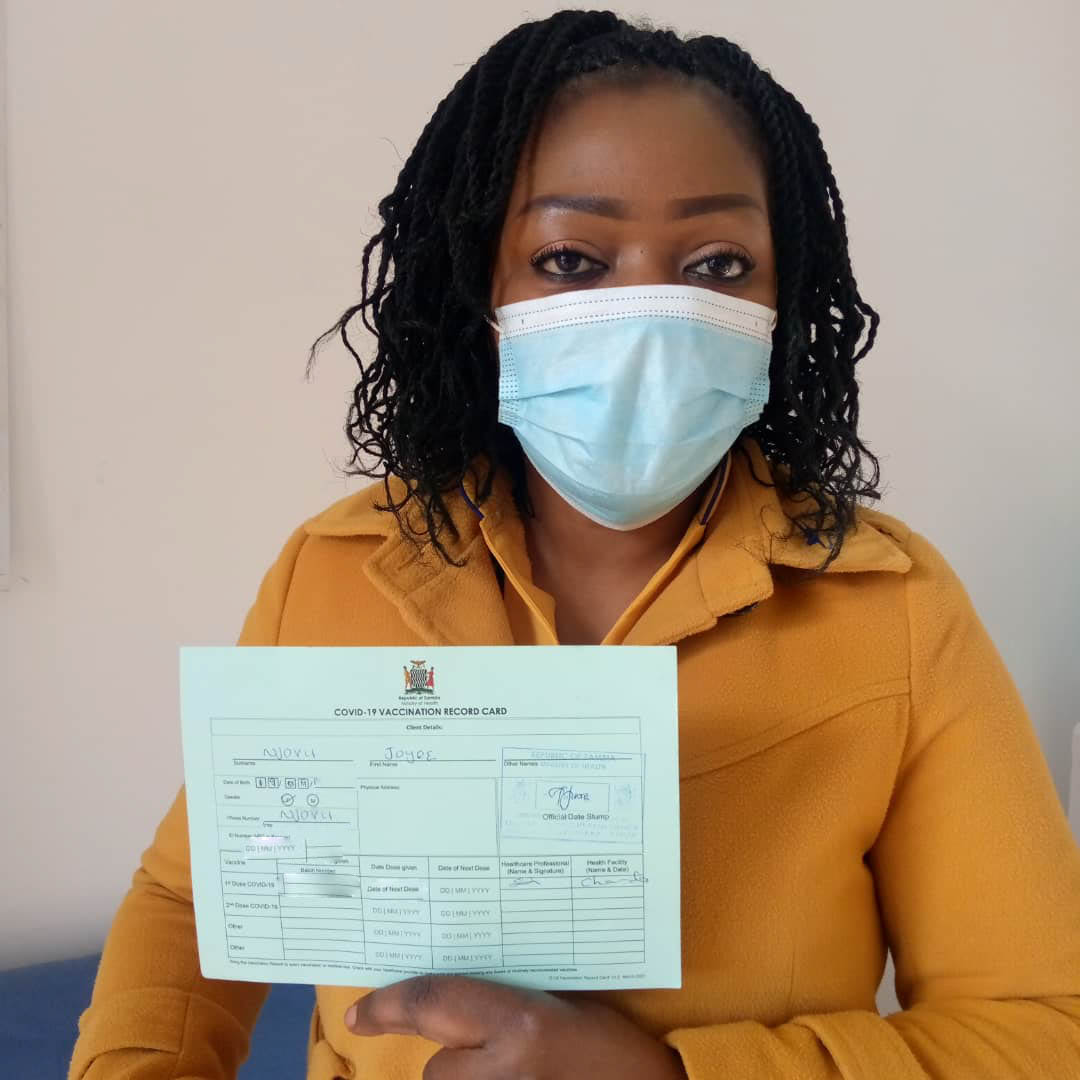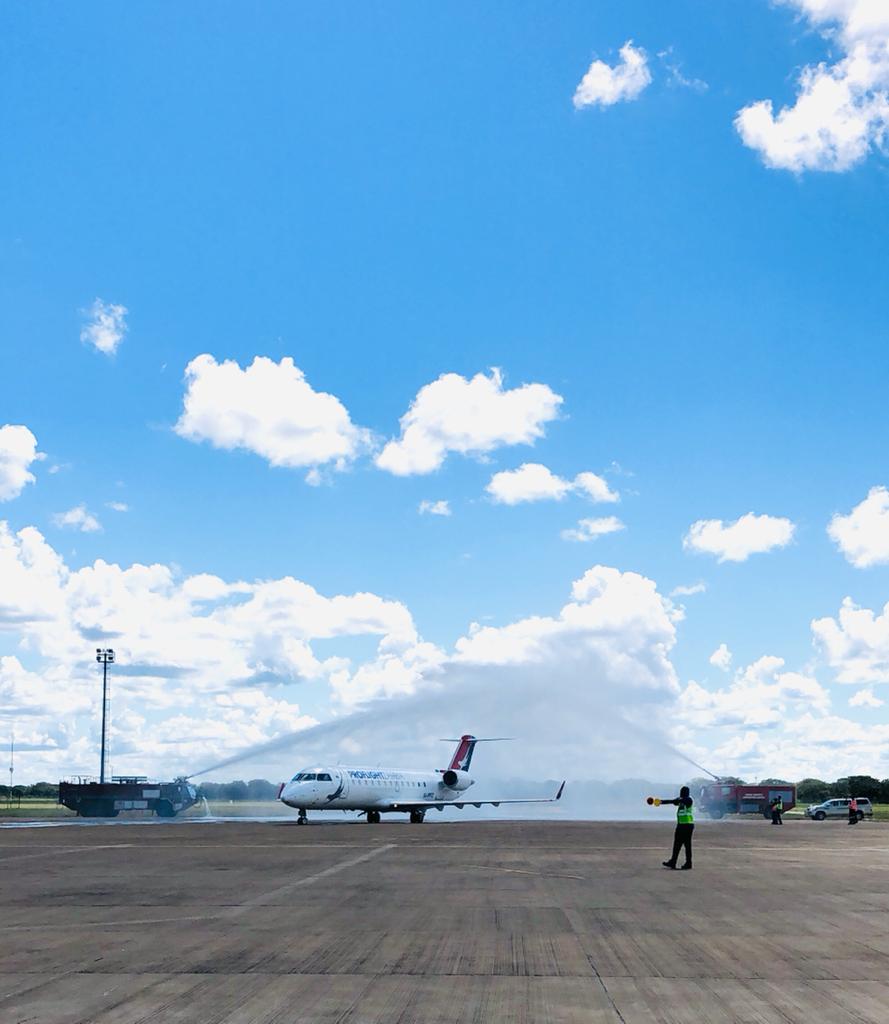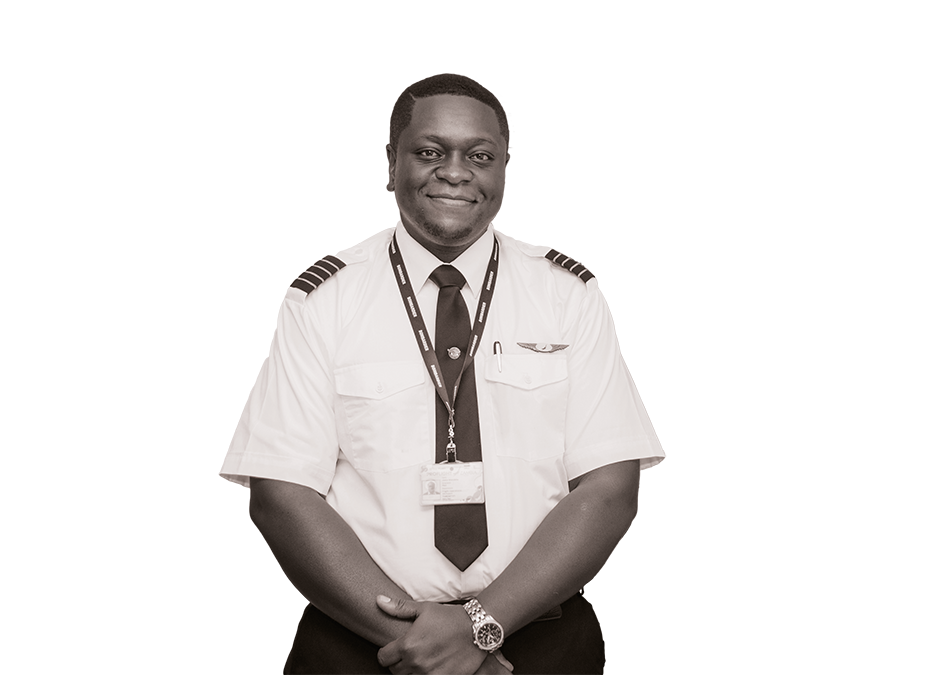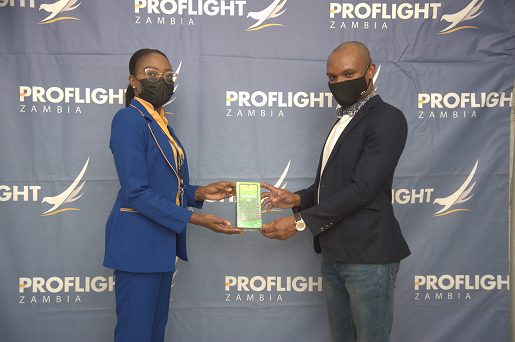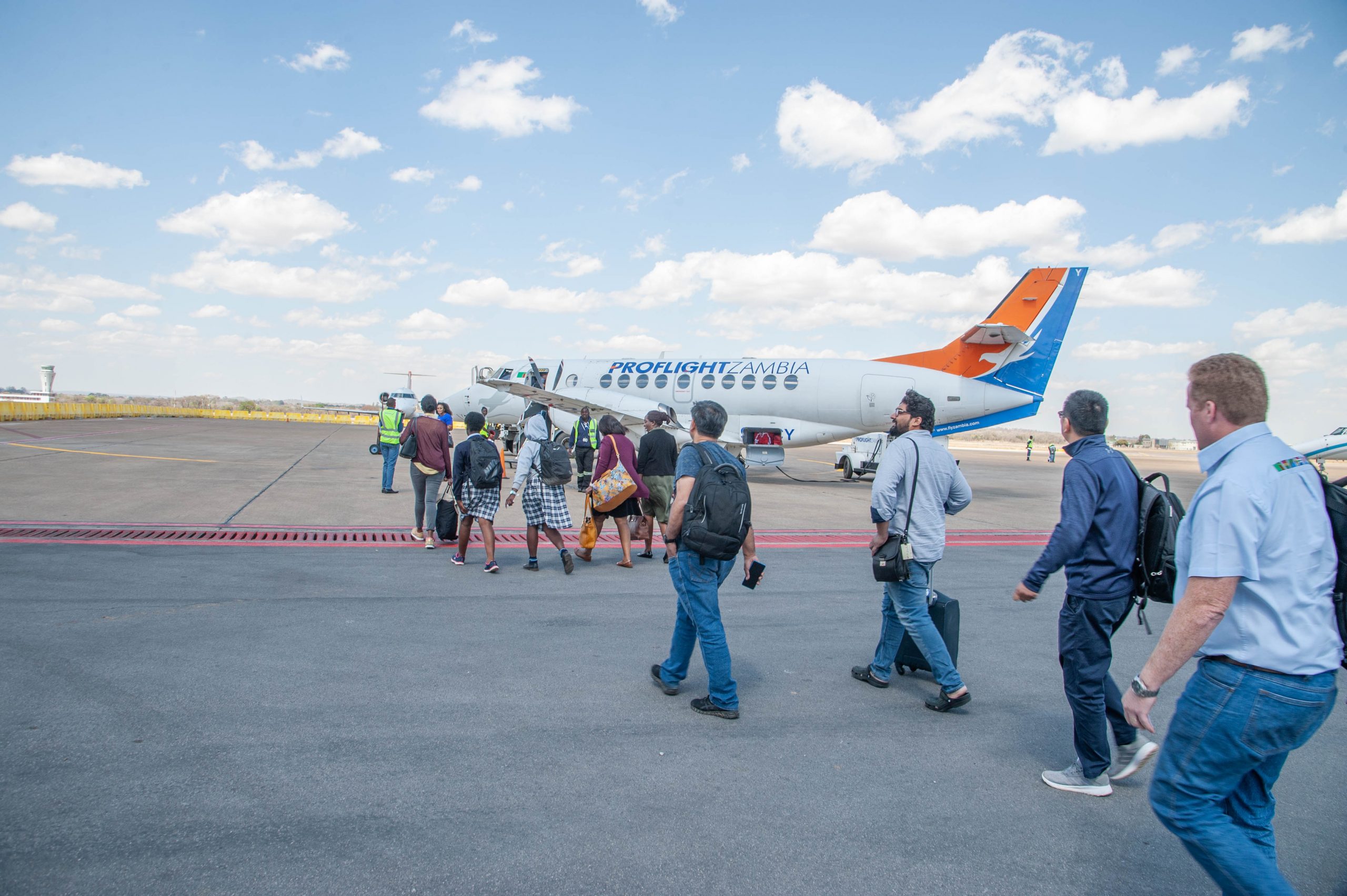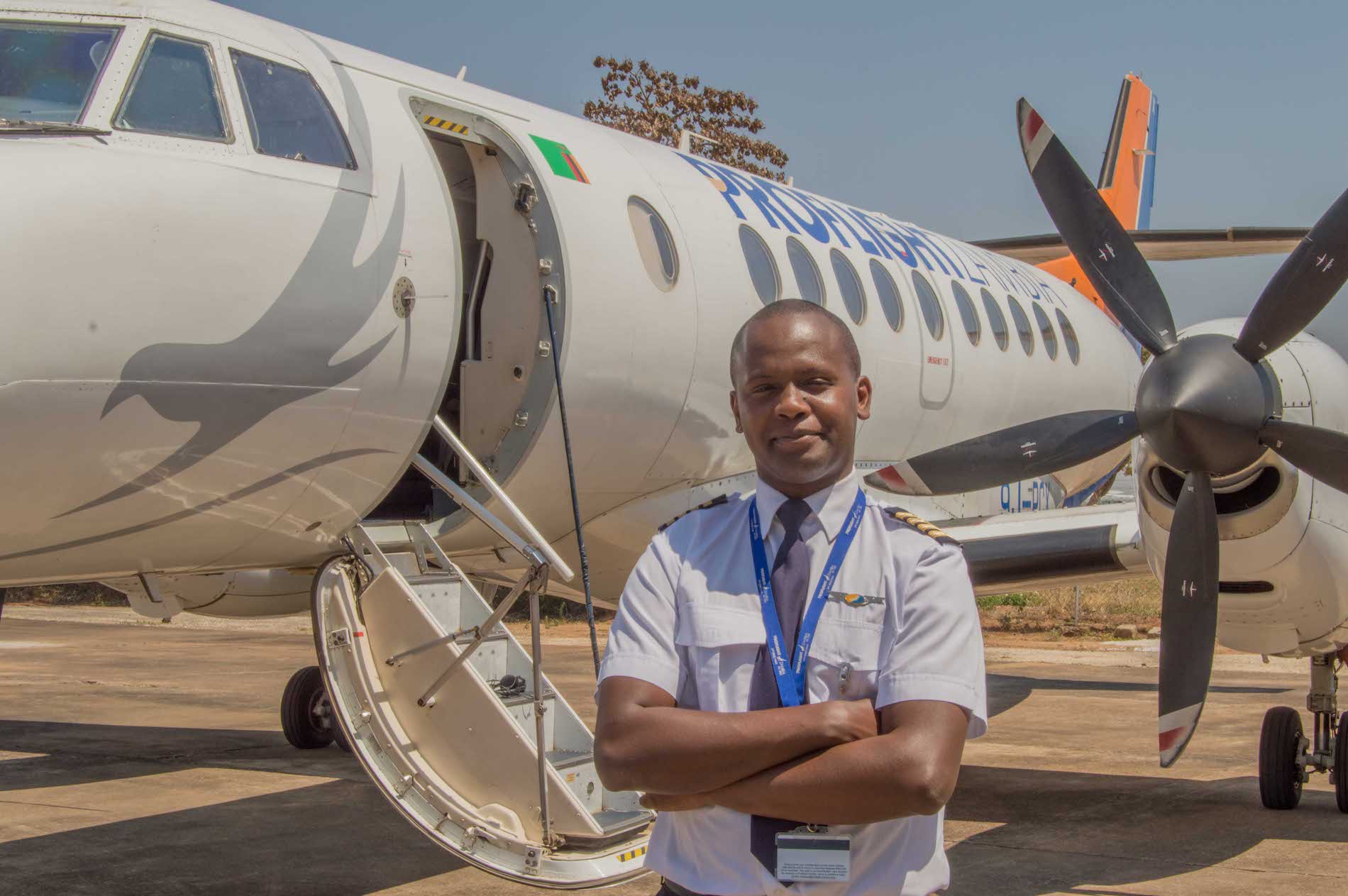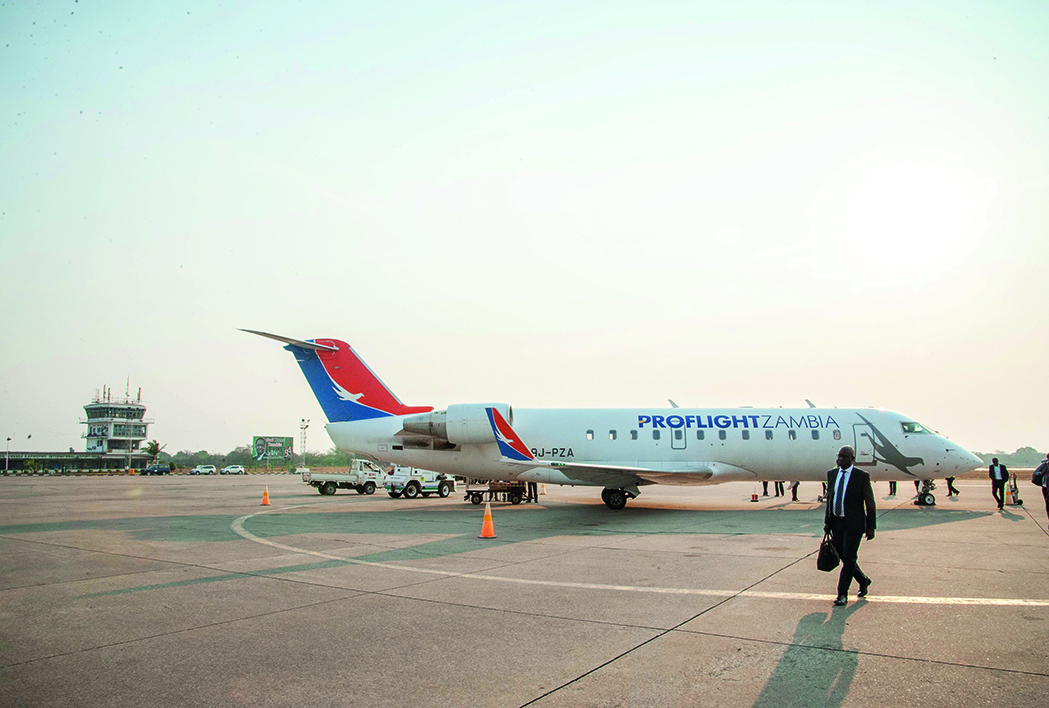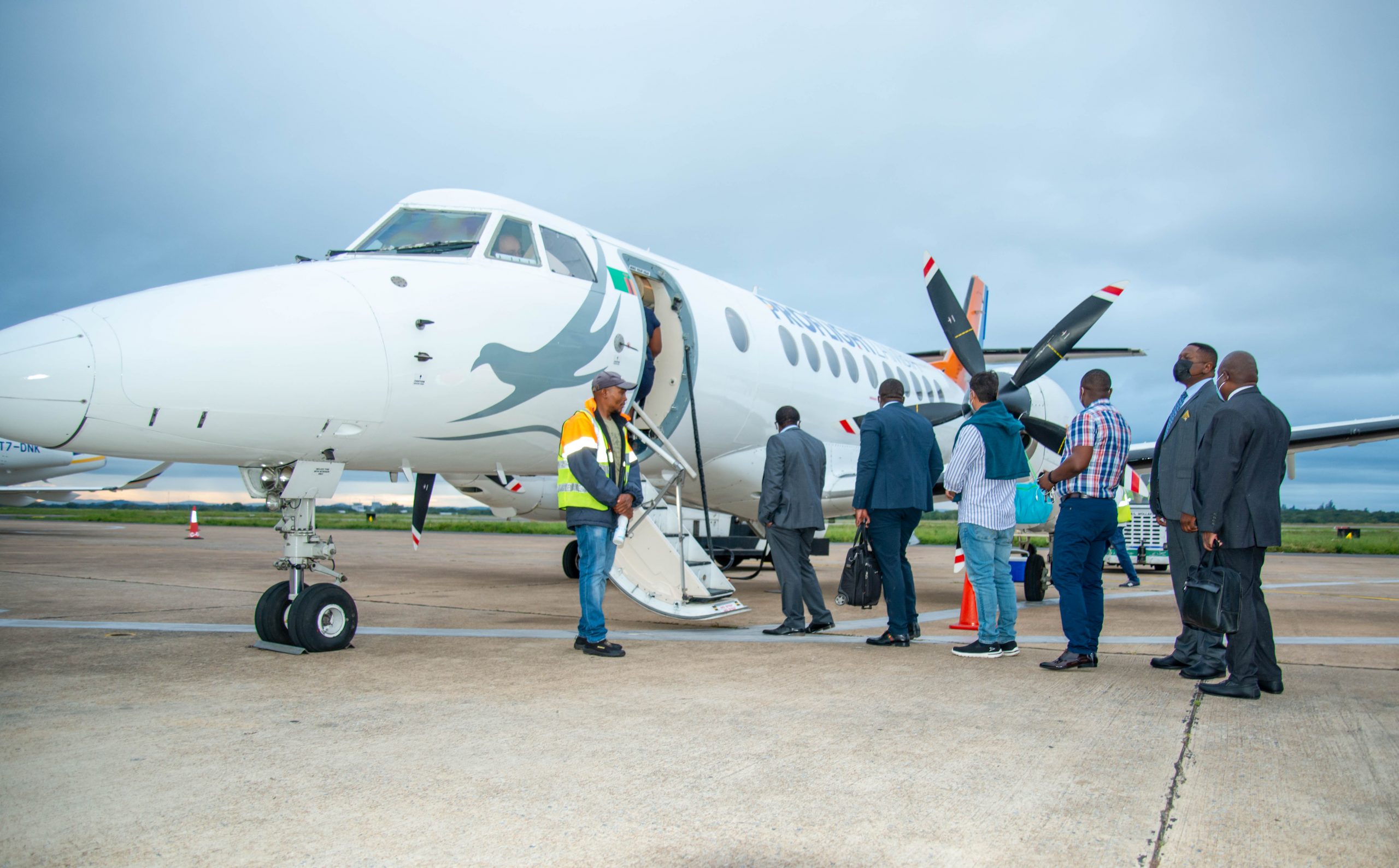LUSAKA, ZAMBIA – Mutukwa Michael Mukela is one of the longest-serving pilots at Proflight Zambia, with a career spanning 11 years.
Michael joined Proflight in 2010 as a young pilot shortly after obtaining his Commercial Pilot’s Licence (CPL). His professionalism has seen him rise quickly from flying a Cessna Caravan to a first Officer on the airline’s flagship aircraft, the CRJ 100 Jet.
Who is Michael?
Mutukwa Michael Mukela is the first born in a family of four. He was born in Maseru, Lesotho, to John and Mathetha Mukela. His family later moved to Zambia where he and his brother began their primary school education at Lusaka’s Chudleigh Primary School in 1993.

He spent much of his childhood moving between different countries including Lesotho, Eswatini and South Africa before settling in Zambia after graduating from high school.
In January 2006, Michael applied and was accepted into the Zambia Air Service Training Institute (ZASTI) where he started his Private Pilot License (PPL) training.
“We were only five in that year’s intake,” narrates Michael. “It took me just over a year to complete my training, which is a very long time by aviation standards.”
“In July 2007, I began training for my CPL (Commercial Pilot License) from Lusaka Flight School at Kenneth Kaunda International Airport. A lot of people aren’t aware that training to become a pilot is not only mentally challenging but financially too.”
“I faced financial difficulties during my CPL course and that’s where Proflight stepped in to help. In return, I was to work for the company as an intern in their dispatch office until I finished my flight training. During that time, I was fortunate enough to be invited on a few flights with some of Proflight’s pilots and Tony Irwin himself.”
Journey with Proflight.
In September 2009, Michael completed his CPL training and soon received a job offer from Proflight Zambia.
He started as a co-pilot on the Cessna Caravan – a role he held until his promotion to Captain on the BN2 Islander aircraft in 2013.
“I started on the Cessna Caravan and have logged over 2000 hrs on that machine. I then flew the Britten-Norman Islander, a high-wing twin piston aircraft, where I accumulated 500 hours. The next aircraft I had the pleasure to handle was the Jetstream 4100. Most of my flying hours have come from this aircraft. I have logged over 3000 hours on this plane.”
“Finally, the CRJ 100 is the plane I’m currently flying. I have less than 100 hours on this plane, but they are rising steadily. Other aircraft that I have flown are the Cessna 172, Cessna 182 and Cessna 206.”
What inspired you to go into aviation?
“Growing up I was fortunate enough to travel by air. It was this that first sparked my interest in flying. As I grew older the desire deepened. As a result, when I got to high school, I chose subjects that are required for one to be accepted into flight school.”
“And later, I bought the flight simulator game which I played obsessively on my computer. From playing the game, I was able to learn the basics of aerodynamics, the telephonic alphabet and that landing a Boeing 777 is not easy.”
Tell us about your job, what does it involve?
“It all starts the night before with adequate sleep. The following day one is obligated to sign in an hour before the scheduled time of departure in our dispatch office. Here we receive all legal documentation necessary for the flight which include but are not limited to journey logs, dispatch release forms, expected weather at departure point, en route, destination and alternate airport, accident/incident report forms.”
“In short, we are briefed by our dispatch officer about any information pertaining to the flight that may be of interest and/or concern that we may not be aware of.”
“My job is very involving and it requires a lot of co-ordination with other departments. My department, Flight Operations, is essentially a product of other departments like Reservations and Maintenance. We wouldn’t fly if either one of the two were not there.”
“We all share the responsibility of making sure the company runs safely, efficiently and offers reliable air services to our customers.”
Moments
“My proudest moment in aviation is when I completed my CRJ type rating at Lufthansa Flight Training in Berlin Germany in 2020,” he recalls.
“I remember being relieved, excited and overcome with joy at the fact that I was done with the course but more so because graduation meant I would be able to fly again after more than eight months on the ground. That, I won’t forget.”
“As Proflight has grown, I think I’ve grown along with it. The fact that I have been able to progress through to the level I am now is a blessing. I always try to be a better person than I was the previous day while ensuring I stay focused on my goals.”
“If you do not have the end goal or end vision in your mind, you won’t take the necessary steps to achieve it. And that is a powerful motivator because once you see the results of your efforts, it encourages you to keep going.”
What are the biggest issues facing indigenous Zambians in aviation today?
“One of the biggest hurdles facing Zambians today is a lack of sponsorship to attend flight training. If it were not for Proflight Zambia’s intervention, I do not know what would have happened to my training.”
“If a system by which aspiring aviators could access funds to pay for their training, even as student loans, a lot of bright underprivileged youths would be able to pursue flying as a career. This problem is made worse by a lack of training institutions across the country.”
What keeps you going?
“Love what you do and do what you love. Don’t be afraid to reach for the stars, for they are within you. You are the creator of your destiny so do not procrastinate because the future is in your hands. Keep positive, don’t give up on your dreams and remember, you cannot grow without pain.”
Uplifting the next generation of aviators
Over the last decade, Proflight Zambia has observed a marked increase in the number of young Zambians taking up careers in aviation.
Despite the difficult economic conditions and a high level of uncertainty in the local Aviation Industry caused by COVID-19, a few tenacious youths are prepared to face down the challenges and nurture a career in Zambia’s blossoming aviation sector.
Proflight Zambia has continued to empower and help buildmany young Zambian pilots like Michael Mukela.
Eleven years ago, only 10 percent of Proflight’s pilot body comprised Zambians while today, over 90 percent of the airline’s pilots are locals.
